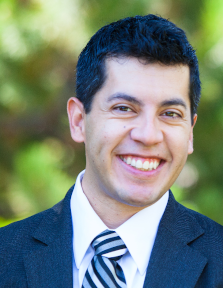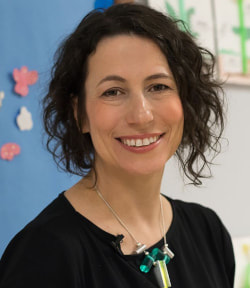Sedas’s research interests include design literacy, design-based learning, STEM + arts & design education, critical design literacy, connected learning, out of school learning environments, STEAM for underrepresented populations, and STEAM learning in museums and public libraries. His current research focuses on how families and educators in out-of-school environments can use design theory and design methodologies to co-create with the learners, activities and contexts for effective learning of STEM+Art content and practices. Sedas received a B.S. in Mechanical Engineering and a M.P.A. (Master in Public Administration) from Brigham Young University, and a M.S. Ed. (Master in Education) In Learning and Developmental Sciences from Indiana University. For his doctoral work her is specializing in Teaching, Learning, and Educational Improvement (TLEI). Pepper serves as his advisor.
An artist by training, Peppler is an associate professor in both Informatics and Education. She engages in research that focuses on the intersection of arts, computational technologies and interest-driven learning. Peppler holds a Ph.D. in Urban Schooling from UCLA, where she was part of the NSF-sponsored team that designed and studied the Scratch platform. Peppler earned a National Science Foundation early CAREER award for her work on how e-textiles and other computational construction kits popularized through the Maker movement can deepen learning and broaden participation across a range of STEM fields. Her research been published in leading journals, including Computers & Human Behavior; Mind, Culture & Activity; British Journal of Educational Technology; Journal of Science and Educational Technology; Studies in Arts Education; Review of Research in Education; Teachers College Record; and Learning, Media & Technology. Abstract As an emerging field of theory, research, and practice, STEAM (Science, Technology, Engineering, Arts, and Mathematics) has received attention for its efforts to incorporate the arts into the rubric of STEM (Science, Technology, Engineering, and Mathematics) learning. In particular, many informal educators have embraced it as an inclusive and authentic approach to engaging young people with STEM. Yet, as with many nascent fields, the conceptualization and usage of STEAM is somewhat ambivalent and weakly theorized. On the one hand, STEAM offers significant promise through its focus on multiple ways of knowing and new pathways to equitable learning. On the other hand, it is often deployed in theory, pedagogy, and practice in ambiguous or potentially problematic ways toward varying ends. This paper attempts to disentangle some of the key tensions and contradictions of the STEAM concept as currently operationalized in educational research, policy, and practice. We pay particular attention to the transformative learning potential supported by contexts where STEAM is conceptualized as both pedagogical and mutually instrumental. That is, neither STEM nor arts are privileged over the other, but both are equally in play. We link the possibilities suggested by this approach to emerging theories for understanding how designing for and surfacing epistemic practices linked to the relevant disciplines being integrated into STEAM programs may point the way toward resolving tensions in inter‐ and transdisciplinary learning approaches. Comments are closed.
|
Resources for:
|
|



